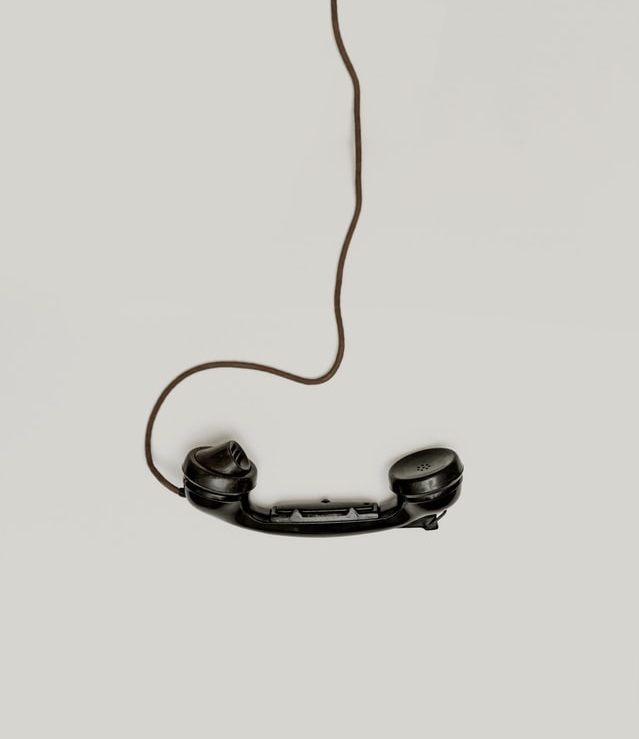I Love You
Most of their adult children lived out of state, yet my husband’s parents called them every Sunday. Carl and I lived nearby, and they called us too; my husband talking on one extension, me on another. One Sunday, the call proceeded as usual, but this time, Nicole didn’t close with her normal “goodbye.” This time, she -paused and said, “We love you, Lori.”
I froze. I had only heard those words from my boyfriends and now my husband. I gripped the phone, not knowing what to say, and after an awkward gap, I threw out, “I love you, too.”
Bill and Nicole were affectionate, hugging and kissing me every chance they got. It didn’t take me long to feel comfortable with their demonstrative ways. I got a kick out of Bill’s intense bear hugs that left me wondering if he could accidentally break a rib. I could handle that.
What I couldn’t handle were Nicole’s words. They triggered feelings of unease and left me unhinged. When I heard my mother-in-law say, “We love you, Lori,” I realized how much I had been missing.
Last summer, I said to my brother, “I never heard ‘I love you’ from our parents.”
“I never heard it either.”
“I sure wish they’d told me,” I said.
“Well,” Alex replied, “I guess I never needed to hear them say that.”
What child doesn’t need to hear ‘I love you’ from their parents? What child doesn’t hang on those three little words?
* * *
I reflected on his answer. Alex, diagnosed with diabetes at the age of four, became our parent’s focus. Attention shifted from firstborn Cindi to him, and when I came along a year later, their focus didn’t change. Growing up, Alex enjoyed boundless freedom. He played with guns at an early age, stockpiled porn, and bullied me with little or no punishment. He had few if any chores, whereas I made dinners most nights after the age of 12. Upon graduation, my parents bought Alex a Porsche; I got luggage. My mother washed his laundry, cooked and cleaned for him while he lived at home until his late twenties. My parents joined him on his extended business trips to Florida and Hawaii. He lapped up our parents’ attention during his extended childhood.
Alex spent more time with our mother after our father died in 1987. They drove to Minnesota in his tiny blue 914 Porsche, camping along the way in a two-person tent and shared tight quarters on his sailboat in the Florida Keys. When my mother needed a handyman, she called Alex. After he repaired a leaky toilet, she kissed him on the lips, handed him a rolled-up hundred-dollar bill; he slipped it into his pocket and left.
My mother moved to my brother’s house in Florida in 2008. They were inseparable six months of the year he lived there, like husband and wife. They shopped, ate out, and sat on the beach together. They rode bikes, hot-tubbed, and ate potluck meals at the clubhouse together. When Alex found a dirt-cheap, last-minute cruise deal, they beelined it to port. In my mothers’ eyes, the cruises’ highlight was how the cruise line staff greeted them. “Hello, Mr. and Mrs. Johnson!” She sounded like a giggly eighty-five-year-old newlywed.
My mother played “Hand and Foot” at the clubhouse with her best friend every Sunday night. Gladys confided in me about what transpired during their weekly card games. “All night long, your mother rambles on: ‘Alex this, Alex that….'” She said everyone at the table rolled their eyes, tired of the weekly monologue.
“I found it strange that your mother never talked about anyone else in the family. Your father, your sister….” She stopped, but I knew what she was about to say: “and she never talked about you.”
Several years ago, my cousin and his wife visited my mother and Alex and came away unsettled by their relationship. “Your mother is like someone on crack! When she talks about Alex, her eyes light up like an addict’s brain on heroin! I’ve never seen anything like it! We couldn’t take it, and we left after a day!” His comparison to addicts wasn’t a casual reference: he was an administrator at a mental health facility.
During her recovery from hip surgery at a rehab facility, I visited my mother and knocked at her room’s door. “Hi Mom, it’s me.” She glanced up and realized I’d come alone. “What?! No Alex?!”
Her words stung. Why had I bothered coming?
As my mother deteriorated, so did her cat. A once-lush Siamese, she was nothing but bones now and petting her pained me. I told Alex I thought it was time to put the poor thing out of its misery. His response was, “Mom wants to say goodbye to her cat when she gets out of rehab. I won’t do anything that mom doesn’t want me to do!” Only after many days of watching the cat crouch by its bowl, unable to eat, did he relent.
My mother returned home and resumed her caregiver role. She washed his laundry, cooked for him, and washed his dishes though my brother was in his sixties. On one of my visits, I heard her greet him: “Good morning Alex! What can I get you for breakfast?”
When I appeared from my room, I got an “Oh, hello.”
I called her out on it, and she offered me breakfast, but it was too late. I made my own and slipped out to the lanai, observing them from afar. Alex in a white leather recliner, my mother on the sofa next to him reading the paper, and when she wanted his attention, she rubbed his calf with her foot. He’d look up from his laptop and ask, “What’s up?”
For the seven years she lived with him, my mother paid Alex rent even though he’d inherited the house from our sister, and the mortgage was paid off. The house showed signs of aging, so my mother hired contractors for major renovations: a new bathroom, new kitchen, and new white tile flooring throughout. The pool was re-tiled, the area around the pool resurfaced, and the screen cage replaced. They asked me to pick out the paint colors for the house, and every room received a fresh coat of paint. All except for one – my bedroom. When I asked why, my mother said, “the color you chose was too close to the one already there.” Alex reveled in the $80,000 worth of renovations his mother paid for.
No, Alex didn’t need to hear those three little words. He knew it.
* * *
My mother, 93, had been declining for months. When she said, “This place is getting to me.” She had enough assisted living: no more Bingo, happy hour, and concerts in the lobby. The daily crossword puzzles she’d once completely inked in now remained empty blocks. Birds at her feeders no longer interested her. The milk, cookies, and candy I brought each week went untouched. She wore the same clothes several days in a row, and her hair was often greasy. She spent more and more time in bed. On one visit, the family pictures on her dresser were lying face down. I asked the staff if it was time for hospice. They nodded.
I sat with my mother in her room while the hospice worker interviewed her. She asked questions about my mother’s ability to dress, shower, and walk to the dining room. My mother answered, and I interjected. After the round of questions, the rep was on the fence about my mother qualifying for hospice. I asked why. “Your mother hadn’t lost the required amount of weight to qualify.”
I turned and looked at my mother. “Mom, do you want to be here for another Christmas?”
“No.”
“Do you want to be here for another birthday?” I pursued.
“No.” She looked at the hospice worker and asked, “Can’t you give me a pill?”
Hospice care began the next day.
* * *
A few days before my mother died, Alex surprised me. “I got an ‘I love you’ from Mom!” he said.
Could it be he needed to hear those three words after all? During her final days, he’d slept on the floor by her bed, leaving her side only to eat and use the bathroom. He’d had plenty of opportunities.
“How did you do it?” I asked.
“I said, ‘I love you,’ and she said it back to me.”
I couldn’t believe it.
After 62 years, I didn’t think I would ever hear those words from her, but it was my last chance. I didn’t feel she loved me. My son, Scott, once said, “Grandma loves you, but in an unhealthy way.”
What on earth does that mean? Either she does, or she doesn’t. Nonetheless, I clung to hope like a survivor adrift on the ocean clings to his raft. And I tried.
She was still, her breathing shallow, her eyes closed. I leaned down and said, “I love you, Mom.” I waited. No response. I wasn’t surprised. She would only say those precious three words to her favorite.
I recalled my one and only prior attempt a few years ago. I’d flown to Florida to help my mother return home after hip surgery and weeks in rehab. I’d hired Granny Nannies, lined up Meals on Wheels, and stocked the refrigerator. I’d arranged visiting nurses and in-home physical therapy, bought her a walker, drove her to doctor appointments, and picked up her prescriptions. I asked neighbors to look in on her. Once plans were in place, I said goodbye to my mother and got the usual lukewarm hug. I walked to the foyer, stopped, and turned back. She was bent over her crossword puzzles. I wondered if I’d ever see her again and repeated, “Bye, Mom,” reaching deep to summon, “I love you.” I did not feel the emotion behind those three words. I just wanted to hear her response.
She replied, “Good, good, good.”
I opened the door and left.
* * *
Alex and I held a bedside vigil for days. He sat in the lazy boy recliner, often dozing; I sat in a wooden rocking chair I brought from the activities room. A team of nurses rotated her, checked for bruises, and propped blankets under her ankles. Hospice care changed from three days a week to daily. She was on oxygen, hadn’t been out of bed in a week, and she grew weaker each day. When her breathing became labored, nurses squeezed morphine in her mouth. She stopped eating and drinking. We swabbed the inside of her mouth with water using a moist sponge-tipped stick and coated her lips with Chapstick. Once, she bit down on the stick and wouldn’t let go, so Alex left it there. A few minutes later, she opened her mouth, and I removed it. She rarely opened her eyes; she was dying, and we could only watch.
Several times an hour, Alex would say, “Mom, Lori and I are here with you.”
“Mom, you can go now,” I told her, trying to put her mind at rest.
I wanted Alex to say it too, so she knew it was all right to go, but he said, “I can’t do it. I don’t want to let her go.”
Day after day, we watched and waited. It was hell.
On November 14th, 2018, what would have been my father’s 97th birthday, Mom’s breathing slowed. Late morning, Bobbie from hospice arrived, felt her pulse, and typed notes on her laptop.
“How much longer?” I asked.
“It’s hard to predict these things, but not long.”
My mother gasped for breath – a big gulp, then nothing. About ten seconds passed, then another gasp, then nothing.
Bobbie sat by her side, and I stroked her hair. We watched her take torturous breaths for ten minutes or so. While Alex walked to the bathroom, I told her, “You can go now,” over and over.
She gulped a breath. I waited for another one. It never came. Bobbie listened to her heart. It was silent. My mother died at 3:20 pm on Dad’s birthday.
Alex came out of the bathroom and heard me crying. “Is she gone?”
“Yes.”
I stepped into the hall and called my children, who’d been expecting ‘the call’ for weeks. All three conversations were identical.
“Grandma died,” I said.
“When?”
I told them, they sighed, expressed their condolences, and asked about funeral plans.
“I’ll let you know,” I said.
At the end of each call, one of us said, “I love you.” The other one said, “I love you, too.”

After retiring from a long career as a financial manager, Lori returned to her love of writing. Over the past four years, she attended writing conferences, workshops, and retreats to polish her craft, and last year, she began submitting her work. Two of Lori’s creative nonfiction pieces have been published.



